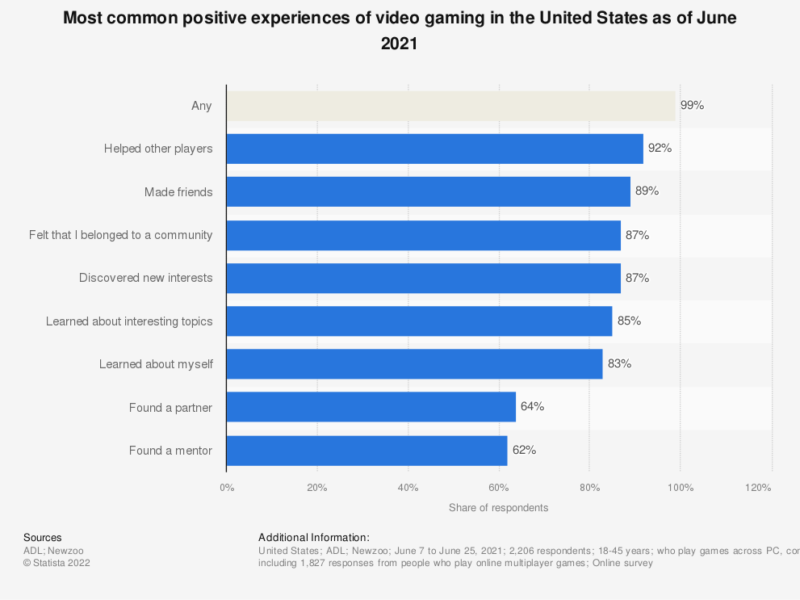The Early Days of Online Gaming
The first online games
The first online games were simple text-based games that were played on bulletin board systems (BBS) in the 1970s and 1980s. These games were limited by the technology of the time and were only accessible to a small group of people who had access to BBS. However, they laid the foundation for the development of more sophisticated online games in the future. The first graphical online game was Habitat, which was launched in 1986 by Lucasfilm Games. It allowed players to create avatars and interact with each other in a virtual world. This game was a precursor to modern massively multiplayer online games (MMOs) and set the stage for the explosive growth of online gaming in the decades to come.
The birth of multiplayer gaming
The birth of multiplayer gaming marked a significant turning point in the history of online gaming. It allowed players to connect with each other from different parts of the world and engage in virtual battles and adventures together. The first multiplayer game, called “MUD,” was developed in 1978 and paved the way for the creation of more complex and sophisticated multiplayer games in the following decades. With the advent of the internet and the rise of online gaming platforms, multiplayer gaming has become an integral part of the gaming industry, attracting millions of players worldwide. Today, gamers can connect with each other through various platforms, including consoles, PCs, and mobile devices, and enjoy a wide range of multiplayer games, from first-person shooters to massively multiplayer online role-playing games (MMORPGs). The future of multiplayer gaming looks promising, with the development of new technologies such as virtual reality and augmented reality, which will enhance the gaming experience and bring players even closer together.
The impact of dial-up internet on online gaming
The impact of dial-up internet on online gaming was significant. In the past, players had to deal with slow and unreliable connections, which often resulted in lag and disconnections during gameplay. This made online gaming a frustrating experience for many. However, it also led to the development of games that were designed to work well with slower internet speeds. As technology improved and broadband internet became more widely available, online gaming became more accessible and enjoyable for players. Today, online gaming is a massive industry that continues to grow and evolve, with new games and technologies constantly being developed.
The Present State of Online Gaming
The rise of mobile gaming
The rise of mobile gaming has been a game-changer in the online gaming industry. With the increasing popularity of smartphones and tablets, mobile gaming has become a convenient and accessible way for people to play games on the go. The introduction of app stores has made it easier for game developers to reach a wider audience, and the development of mobile-specific games has led to a surge in the number of mobile gamers. The rise of mobile gaming has also led to the emergence of new business models, such as free-to-play games with in-app purchases, which have become a major source of revenue for game developers. As technology continues to evolve, we can expect mobile gaming to become even more immersive and engaging, with the potential for virtual and augmented reality experiences on mobile devices.
The dominance of esports
Esports, or competitive video gaming, has become a dominant force in the online gaming industry. With the rise of streaming platforms like Twitch and the increasing popularity of games like League of Legends and Overwatch, esports has grown into a multi-billion dollar industry. Professional esports teams and players have gained celebrity status, with tournaments and championships drawing in massive audiences both online and in-person. The future of esports looks bright, with continued growth and investment expected in the coming years. As technology advances and more games are developed specifically for competitive play, esports is poised to become even more mainstream and lucrative.
The impact of social media on online gaming communities
The impact of social media on online gaming communities has been significant. Social media platforms have provided gamers with a space to connect with each other, share their experiences, and form communities. This has led to the growth of online gaming communities, which have become more diverse and inclusive. Social media has also enabled gamers to share their content and creations with a wider audience, leading to the rise of gaming influencers and content creators. However, social media has also brought its own set of challenges, such as cyberbullying and toxicity in online gaming communities. Overall, the impact of social media on online gaming communities has been both positive and negative, and it will continue to shape the future of online gaming.
The Future of Online Gaming
The potential of virtual reality gaming
The potential of virtual reality gaming is immense. With the advancement of technology, virtual reality gaming has become more accessible and affordable. It offers a completely immersive experience that allows players to feel like they are actually inside the game. The potential for virtual reality gaming is not limited to just entertainment, but also has applications in education, training, and therapy. As the technology continues to improve, we can expect to see more innovative and exciting virtual reality games in the future. However, there are also concerns about the potential negative effects of prolonged virtual reality use, such as motion sickness and disorientation. It is important for developers to address these concerns and ensure that virtual reality gaming remains a safe and enjoyable experience for all players.
The impact of artificial intelligence on online gaming
The impact of artificial intelligence on online gaming has been significant in recent years. AI has been used to create more realistic and challenging opponents for players, as well as to improve game mechanics and graphics. Additionally, AI has enabled developers to create more personalized gaming experiences for individual players, based on their preferences and behavior. As AI technology continues to evolve, it is likely that we will see even more advanced and sophisticated applications in the world of online gaming, such as fully autonomous game characters and more immersive virtual environments. However, there are also concerns about the potential negative effects of AI on gaming, such as the possibility of addiction and the loss of human interaction and creativity.
The role of blockchain technology in online gaming
The role of blockchain technology in online gaming has been a topic of discussion for quite some time now. Blockchain technology has the potential to revolutionize the online gaming industry by providing a secure and transparent platform for players to engage in gaming activities. With blockchain, players can be assured that their transactions are secure and cannot be tampered with. Additionally, blockchain technology can also be used to create decentralized gaming platforms that are not controlled by any central authority. This would give players more control over their gaming experience and could potentially lead to a more fair and equitable gaming environment. As blockchain technology continues to evolve, it is likely that we will see more and more online gaming platforms adopting this technology in the future.


